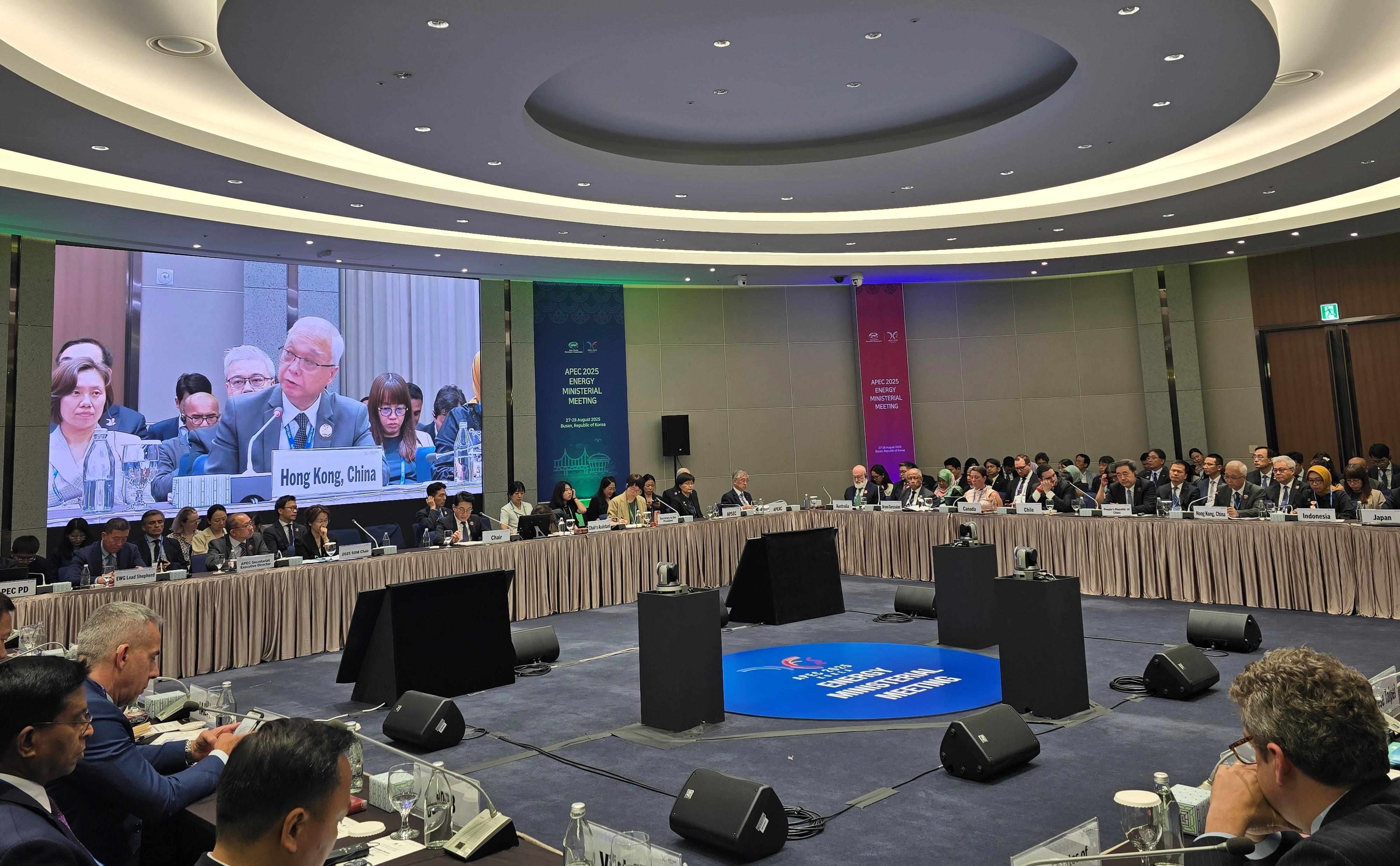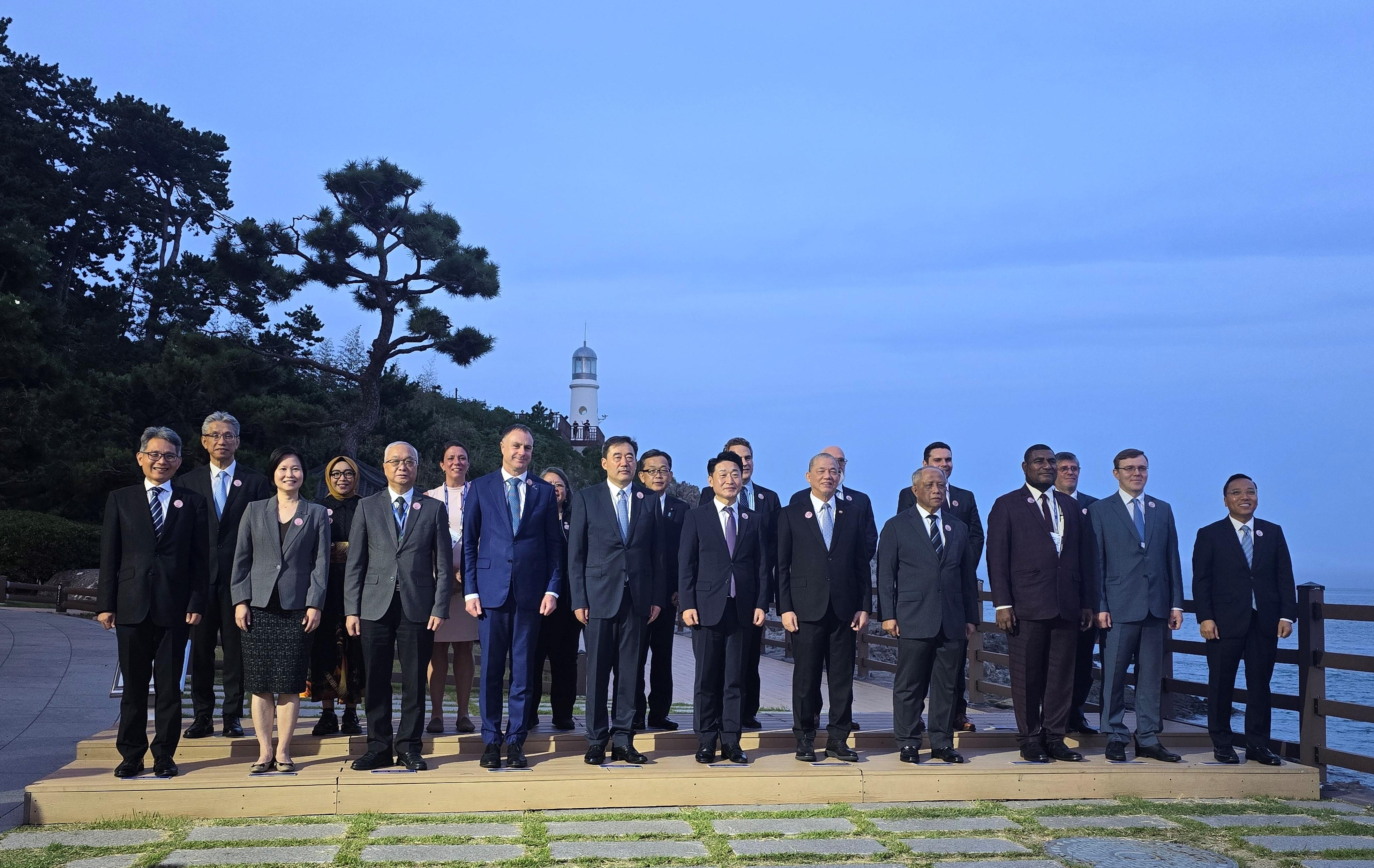
Carbon emissions in Hong Kong have been reduced by about a quarter compared to the peak the city reached in 2014, according to the city's secretary for environment and ecology.
“Our per capita carbon emissions in 2023 were about 4.4 tons. On this foundation, Hong Kong commits to striving to further cut our carbon emissions by half before 2035 and achieve carbon neutrality before 2050,” Tse Chin-wan said at the opening session of the Asia-Pacific Economic Cooperation (APEC) Energy Ministerial Meeting (EMM) in Busan, South Korea, on Wednesday.
The SAR government has set the target to phase out coal for daily electricity generation by 2035, and increase the share of zero-carbon energy in the fuel mix for electricity generation to about 60 to 70 percent by 2035, he added.
READ MORE: HK unveils world’s first spaceborne payload for monitoring emissions
Energy ministers from the 21 APEC member economies – which consume approximately 60 percent of the world's energy – gathered in Busan on Wednesday to discuss energy security amid surging electricity demand driven by the growth of artificial intelligence (AI) and other advanced industries.
Under the theme "Building a Sustainable Tomorrow" for APEC this year, the meeting focuses on topics under three priorities: "Connect, Innovate, Prosper".
In his speech, Tse said that with the concerted efforts of different sectors of the community, the aggregate energy intensity in Hong Kong, as of 2022, has decreased by over 30 percent, using 2005 as the base year.
ALSO READ: Hong Kong launches carbon neutrality drive
While the electricity consumption in the past 20 years has increased by 15 percent, the emissions of sulphur dioxide, nitrogen oxides, and particulates due to power generation have been reduced by 98 percent, 77 percent, and 86 percent, respectively, he added.

“Hong Kong, China has been embracing artificial intelligence and Internet of Things to improve grid management, including the use of AI management system to monitor critical power facilities and to strengthen the resilience of the power supply system.”
According to the secretary, the total green and sustainable debt issued in Hong Kong in 2024 exceeded $84 billion, ranking first in the Asian market for seven consecutive years.
READ MORE: Constructing a green, sustainable future
From time to time, Hong Kong holds green mega events, such as the Hong Kong Green Week and Eco Expo Asia, to strengthen liaison and cooperation between different sectors, he added.
“We will continue to serve as a platform and hub to connect the world to develop new energy solutions to diversify power resources to support the development of energy-hungry artificial intelligence and related industries,” Tse said, urging the APEC economies not to forget innovation to improve energy efficiency to make new technological developments sustainable.


